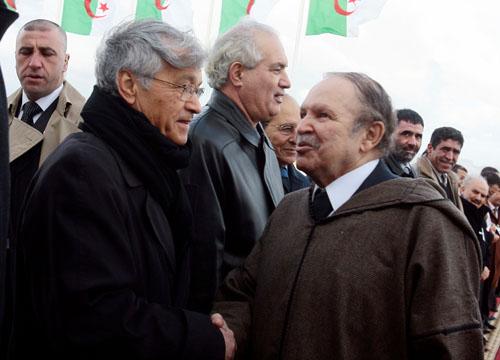You are here
Algeria recalls veteran crisis manager Ouyahia as prime minister
By Reuters - Aug 16,2017 - Last updated at Aug 16,2017
ALGIERS — Algeria's presidency has recalled veteran crisis manager Ahmed Ouyahia as prime minister, a job he first held in the 1990s when Algeria was battling an Islamist insurgency.
Ouyahia, 65, will replace Abdelmadjid Tebboune, who held the job for just three months, the office of President Abdelaziz Bouteflika said on Tuesday.
Ouyahia will likely be seen as a steadying influence as Algeria tries to carry out economic adjustments to cope with a fall in oil prices that has slashed state revenues.
The presidency statement gave no reason for the change. Ouyahia has served three terms as prime minister and most recently was Bouteflika's chief of staff.
A veteran politician and diplomat by training, Ouyahia first became prime minister in the mid-1990s, when Algeria was fighting to suppress an Islamist insurgency.
He is also leader of the National Rally for Democracy, a party close to the presidency that increased its number of seats in May's parliamentary election.
"Ouyahia is a renowned servant of the state who has the experience to manage situations of crisis," said Arslan Chikhaoui, an Algiers-based analyst who runs a private consultancy firm.
The North African state's political system is often opaque, and Bouteflika, 80, has rarely been seen in public since suffering a stroke in 2013. Under the constitution, the president appoints the prime minister.
Political jostling around Bouteflika has intensified as his health has waned, fuelling questions about the shape of any transition if he steps down before his term ends in 2019.
Moves to reduce subsidies and imports and diversify Algeria's oil-dependent economy have created political divisions over how far to push reforms.
As prime minister Tebboune was leading the austerity drive, and had also spoken out about the need to separate money from politics.
In the run up to Tebboune's dismissal, there was media speculation that he had fallen out of favour because of differences with Ali Haddad, a prominent businessman close to the presidency.
Related Articles
ALGIERS — Algerian President Abdelaziz Bouteflika's Cabinet director and loyal backer Ahmed Ouyahia was elected as the new leader of one of
ALGIERS — Former Algerian energy minister Chakib Khelil brushes off talk of presidential ambitions.
ALGERIA — An Algerian prosecutor demanded on Thursday an appeal court stiffen sentences against former political leaders, including two ex-p















